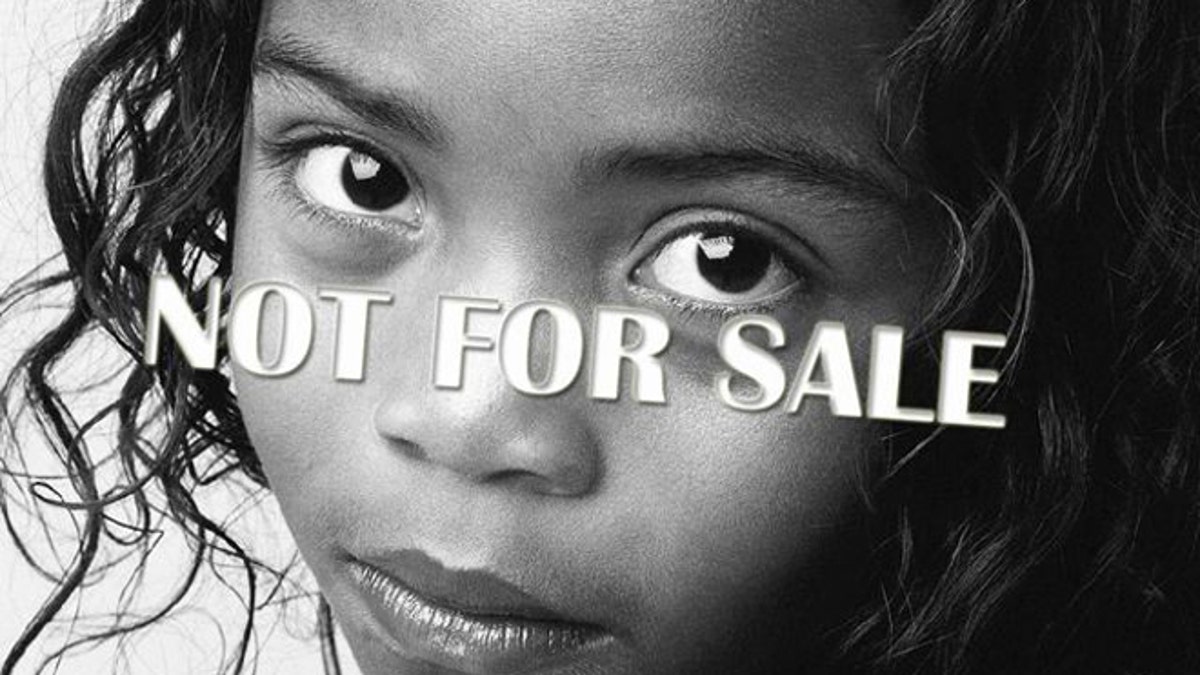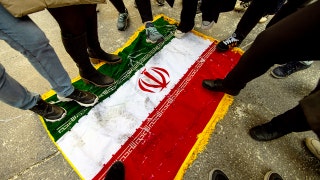
(AP)
Kimberly Ritter, an anti-sex trafficking advocate, describes the horror: “They take little girls and walk them from truck to truck, they call them lot lizards. The pimp needs to keep control of the girls, that pimp can sell her up to 20 times a day, 7 days a week.” The girls can be 12 and 15 years old; they are our neighbors, nieces, sometimes our daughters or sisters. Take a moment; picture the pain, the torment, the hopelessness and anguish. The stories are real. Modern day slavery is happening right here in the United States of America…hiding in plain sight.
Sunday night, Americans across the country will tune into what is arguably the biggest sporting event of the year – the National Football League’s Super Bowl 50. As Carolina Panthers and Denver Broncos fans stream to California for the big game, innocent children and women will be forced into modern-day sexual slavery rings right there in Santa Clara.
According to the McCain Institute, a non-profit organization focused on advancing democracy and human rights, large sporting events in concentrated urban areas become prime locations for traffickers to exploit victims.
While conversations about human trafficking escalate around Super Bowl Sunday, we also know that this heinous practice happens every single day in nearly every city and town across the country. According to Polaris, a non-profit organization recognized as the global leader in the fight against this modern day slavery, tens of thousands of women, girls, and boys are trafficked each year in the United States, with millions more falling victim worldwide.
Over the years, we have increasingly seen sex trafficking transactions made through online sites and advertisements. Now, predators can browse websites and have child prostitutes sent to their hotel rooms or homes as easily as ordering pizza.
As mothers, as sisters, and as lawmakers, it is our duty to raise awareness and work to eradicate this horrific practice that generates billions of dollars for pimps and criminals annually in the United States and beyond.
In May, for the first time in 13 years, Congress passed, and the President signed, legislation to address human trafficking. An issue that for too long festered in the shadows, this legislation included many individual bills we authored and supported that aim to better identify and protect victims while also cracking down on this cruel exploitation of women, girls, and boys.
The laws we passed will increase penalties for predators and provide resources for law enforcement to better investigate sex crime rings, also allowing them to prosecute those who knowingly profit from online advertisements that exploit the victims of sex trafficking. It improves law enforcement’s collection of trafficking data, and provides for much-needed training to federal employees and health professionals, all while allocating more resources to survivor shelters. Most importantly, this new law will increase the identification of victims and provide support for survivors as they heal and rebuild their lives.
As legislators, we believe these new laws are a step in the right direction, however more can and must be done. Without awareness and education, many of these victims will never be freed and will be forced to endure a life of endless abuse.
We are thankful that so many organizations across the country are willing to speak out and educate others. Public and private partnerships are crucial to breaking this heinous cycle of exploitation and victimization and we applaud the NFL for their efforts to raise awareness around Super Bowl Sunday.
While our work on this issue has revealed the most depraved and evil segments of our society, it has also shed light on the bravest and most courageous among us.
We draw inspiration from law enforcement professionals who are on the front lines every day protecting our nation’s children from pimps and traffickers. We are filled with hope by those who work in victims’ services and grateful for their tireless efforts to help survivors recover, heal, and establish new lives following the horrors of sexual enslavement.
Most importantly, we are inspired by survivors themselves whom we have met in our hometowns. Their courage and strength to speak out, refusing to let their past experiences define them, is nothing short of heroic. They work each and every day to help educate, raise awareness and speak the truth of this evil underbelly within our society.
We are dedicated to this work, legislatively and beyond, to provide a voice for these victims until human trafficking is eradicated in the United States. We urge you to contact your members of Congress, state and local officials to learn how you can become more involved in educating your community about the evil of modern-day sex slavery.
Congresswoman Ann Wagner, R-Missouri, has served the Second District of Missouri, just outside of St. Louis, since 2013. Wagner is a member of the House Financial Services Committee and holds positions on the Elected Leadership Committee and the GOP Whip Team, serving as Senior Deputy Whip. Prior to her time in Congress, Wagner spent four years as the U.S. Ambassador to Luxembourg under Secretary of State Condoleezza Rice. (Full bio can be found here.)
Congresswoman Renee Ellmers, R-N.C., represents the Second District of North Carolina. She has served on the House Energy and Commerce Committee since 2012, and she currently sits on the Health, Communications & Technology, and Energy & Power subcommittees. Prior to running for office, Rep. Ellmers served as a registered nurse for over twenty-one years and owned a General Surgery practice with her husband in Dunn, North Carolina. (Full bio can be found here.)







































